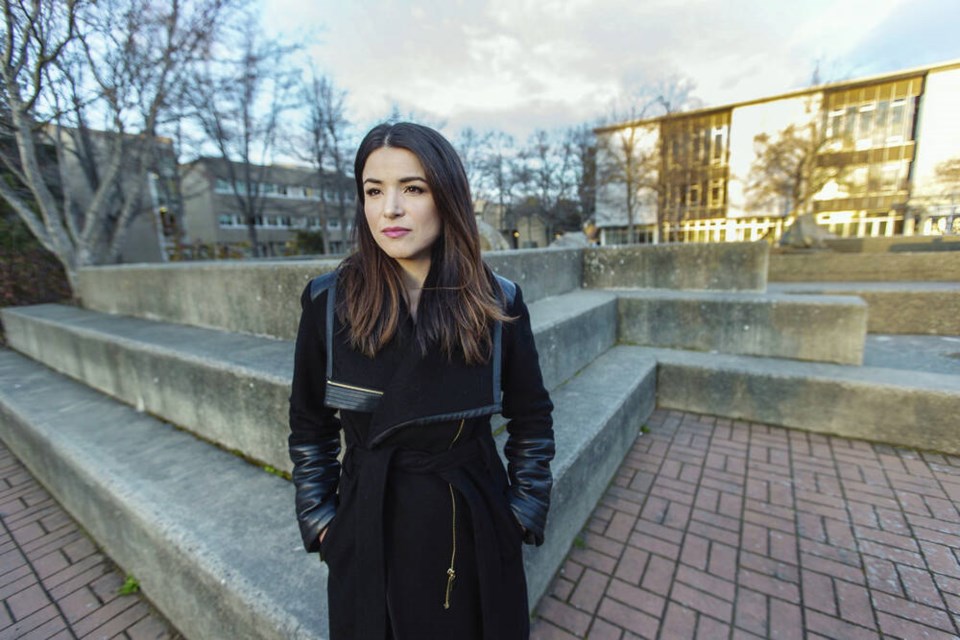Friends are preparing to celebrate the life of a Saanich woman who fought the B.C. government over access to a life-extending cystic fibrosis medication. Lilia (Lily) Zaharieva, 35, died by suicide on June 17.
Zaharieva, who had cystic fibrosis most of her life, was one of the lead plaintiffs in a class-action lawsuit over the provincial government’s refusal to cover a $250,000-a-year medication called Orkambi.
In 2017, the former University of Victoria student lost her insurance coverage for the medication when the UVic Students’ Society changed its health benefits plan.
Zaharieva, alongside Melissa Verleg of Kelowna, sought $60 million in damages from the province, the federal government and two drug-approval bodies over the process that made the medication inaccessible.
The lawsuit was the first class action on behalf of cystic fibrosis patients and claimed that denying patients lifesaving medications violated their section 7 rights to life and liberty under the Canadian Charter of Rights and Freedoms.
Both women had a strain of cystic fibrosis called Double Delta F508. Until gene therapy drugs like Orkambi and, later, Trikafta, life expectancy for most cystic fibrosis patients was only into their early 30s. The medications can significantly extend life expectancy for most patients.
Lawyer and activist Chris MacLeod, who represented Zaharieva and Verleg, credits the class action as an integral first push in the fight for coverage.
The lawsuit, he said, forced the government to acknowledge the flawed process and was key to success that came down the line, when more advocates joined the call.
“Lilia was a first mover on the advocacy piece for cystic fibrosis drugs,” he said.
“She was the torch bearer when there weren’t many voices around.”
Advocacy groups CF Get Loud and CF Canada later joined calls for medication access. Orkambi and Trikafta are now covered by the government for most cystic fibrosis patients in Canada.
Zaharieva’s lawsuit never made it to court, but with the drugs now widely available, it will soon be withdrawn.
“It took too long to get here but we got here,” MacLeod said. “That lawsuit that Lilia championed was pivotal. She deserves, along with Melissa, a huge chunk of credit.”
MacLeod also considered Zaharieva a close friend.
“I think that she was such a gifted, strong and remarkable individual,” he said. “She already left an imprint and a mark that’s significant. But you can’t help but think of the untold story her life could have told.”
Zaharieva, who immigrated from Bulgaria at age six with her mother, father and brother and was placed in B.C.’s foster care system at 14, was also an avid voice for youth in care, founding the education and support group insideOUT and speaking at conferences around the world, including a talk on community action at a 2012 TEDxYouth event in Victoria.
Zaharieva was a strong advocate for mental health support too, friends say. She was placed in the foster care system as a child and spent much of her time in the hospital alone receiving cystic fibrosis treatment. She studied philosophy for several years before switching to the School of Child and Youth Care at UVic, where she was was the senior author of a 2016 report on strategies for youth with lived experience in foster care to enter, progress through and graduate from post-secondary education. According to a UVic tribute, the report has been used by several schools to develop approaches to assist youth from care.
“She was really strong and she was, in my opinion, a great Canadian,” said longtime friend Ashly Dyck. “She was a really impactful figure and she changed the face of British Columbia health care for the better. And she even changed policies at UVic because of her experiences being in foster care.”
Zaharieva co-authored an article on understanding pain-based behaviour in youth in care that was published in the International Journal of Child, Youth and Family Studies in 2019, based on a research project that explored “the pain of complex trauma and formulating healing responses to pain-based behaviour.”
Friends said Zaharieva made her own family, easily forming new friendships wherever she went.
“She was an incredible friend, she was silly and goofy, and so supportive and so fun,” Dyck said. “She was really incredible at making connections with people. She was very loved. She had a really vast and diverse circle of friends.”
Zaharieva’s friends are hosting a public Celebration of Life on Sunday at the Victoria Public Market from 5:30 p.m. to 9:30 p.m. Her friends launched a GoFundMe to pay for the event and plan to donate any leftover money to Wellness Together Canada and the Vancouver Island Counselling Centre for Immigrants and Refugees.
An endowed student award is being created through UVic in Zaharieva’s name. Contributions can be made to the Lilia Zaharieva Spirit Award online or by calling 250-472-4924.
Help is available for suicide prevention. If you are in crisis, call the 24-hour Vancouver Island Crisis Line at 1-888-494-3888. Help is available by text, online chat or by phone. Talk Suicide Canada service is available at 1-833-456-4566 and Kids Help Phone provides access to trained responders by texting 686868.
ngrossman@timescolonist.com
>>> To comment on this article, write a letter to the editor: letters@timescolonist.com



